The Perilous Atlantic Crossing: Migration and the Human Cost of Fortress Europe
The year 2024 ended with a grim milestone: the highest recorded death toll of migrants attempting to reach Spain’s borders. According to the NGO Caminando Fronteras, over 10,457 people died or disappeared while trying to cross into Spanish territory via irregular maritime routes—a 58% increase from the previous year. This sharp rise in fatalities underscores the lethal impact of European Union (EU)-sponsored border policies, particularly along the Atlantic route to the Canary Islands, now considered the deadliest migration crossing in the world.
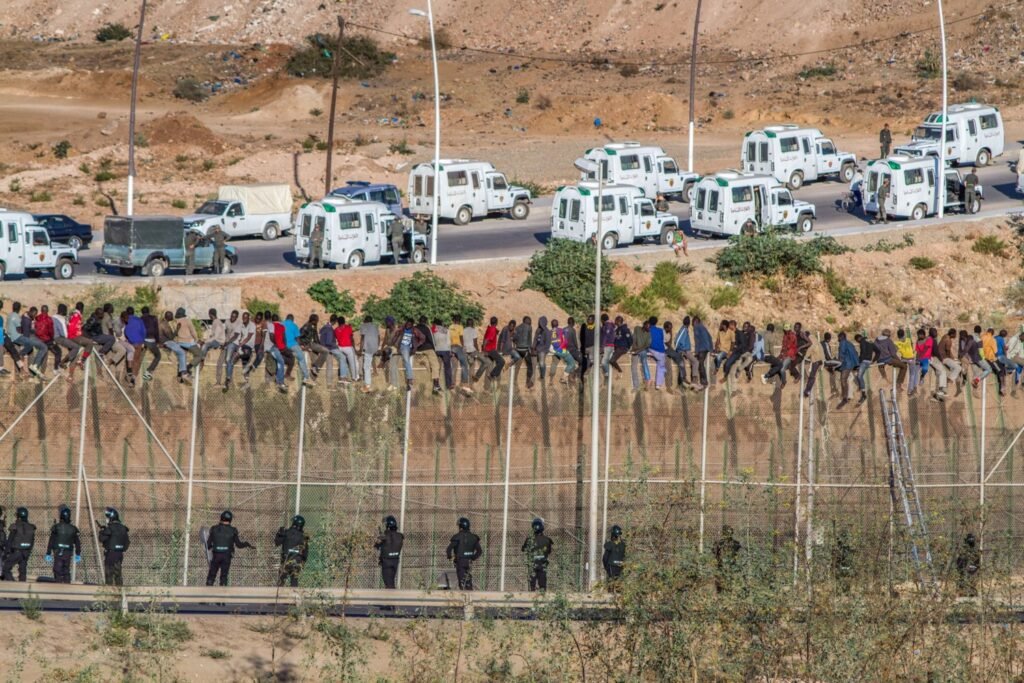
The Atlantic Crossing: A Dangerous Gamble
The majority of the victims in 2024—9,757 people—perished while attempting to reach the Canary Islands from West Africa. This route, fraught with peril, has become a grim last resort for migrants as more accessible paths through the central Mediterranean are increasingly obstructed by EU border control measures. Often traveling in traditional wooden fishing boats known as cayucos, migrants endure journeys lasting up to two weeks, plagued by engine failures, starvation, and dehydration.
The harrowing account of T.D., a Malian survivor, encapsulates the unimaginable suffering endured on these crossings. His vessel drifted for days as food and water ran out, forcing passengers to watch their loved ones succumb to the elements. For some, despair drove them to throw themselves into the ocean. These stories are tragically common among those attempting this treacherous route.
The Role of EU and Spanish Policies
The alarming rise in deaths is not an isolated series of tragedies but a direct consequence of Fortress Europe’s restrictive border policies. By outsourcing border security to non-EU countries like Morocco and Tunisia, the EU has created a system that forces migrants onto increasingly dangerous routes. The war in Mali and the EU’s €1 billion strategic partnership with Tunisia—a deal that intensified repression along the central Mediterranean route—have further funneled migration toward the Atlantic.
In 2024, Spain and the EU pledged €500 million to Mauritania to strengthen its border security, mirroring practices in other EU-funded regimes that use arbitrary detention, physical violence, and displacement to control migration. Yet, despite these measures, over 46,000 migrants arrived in the Canary Islands in 2024—a 20% increase from the previous year. This underscores the futility of containment policies that ignore the root causes of migration while exacerbating the risks faced by those seeking refuge.
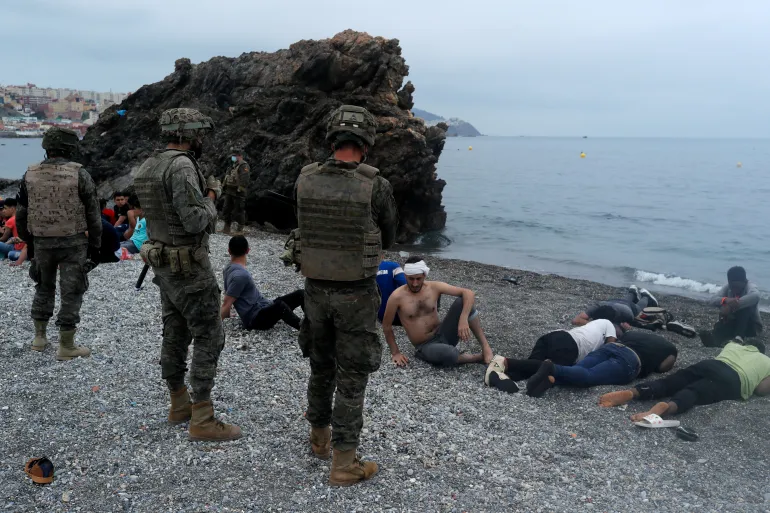
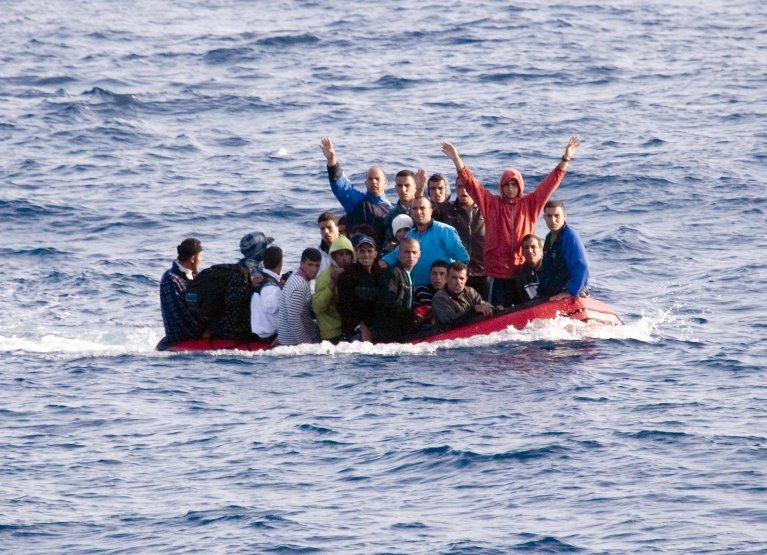
Spain’s Dual Approach: Progress and Contradictions
Spain’s left-leaning government, led by Prime Minister Pedro Sánchez, has projected a progressive image on immigration policy, most notably through plans to regularize the status of 900,000 undocumented migrants over the next three years. However, this initiative largely benefits Latin American migrants who arrived legally by air, leaving those who attempt dangerous maritime crossings excluded from such measures.
Meanwhile, Spain has intensified its border security efforts along its southern frontiers. Increased aerial and maritime surveillance in partnership with the EU’s Frontex agency and Senegalese authorities has forced cayucos further into the open ocean, making the journey even more hazardous.

This strategy, combined with Spain’s reluctance to assume responsibility for search-and-rescue operations in contested waters, has led to countless preventable deaths. In one case, a cayuco with 150 passengers drifted for ten days as Spain, Morocco, and Mauritania argued over jurisdiction. By the time the boat reached shore, 28 passengers had died—an outcome Caminando Fronteras called an “avoidable tragedy.”
The Politics of Migration Control
The rising death toll highlights the underlying hypocrisy in Spain’s migration policy. While Sánchez’s government criticizes right-wing anti-immigrant rhetoric, it simultaneously enforces policies that endanger lives. Spain’s Interior Minister, Fernando Grande-Marlaska, is lobbying for Frontex to extend its operations into West African waters, a move likely to further militarize migration routes and increase fatalities.
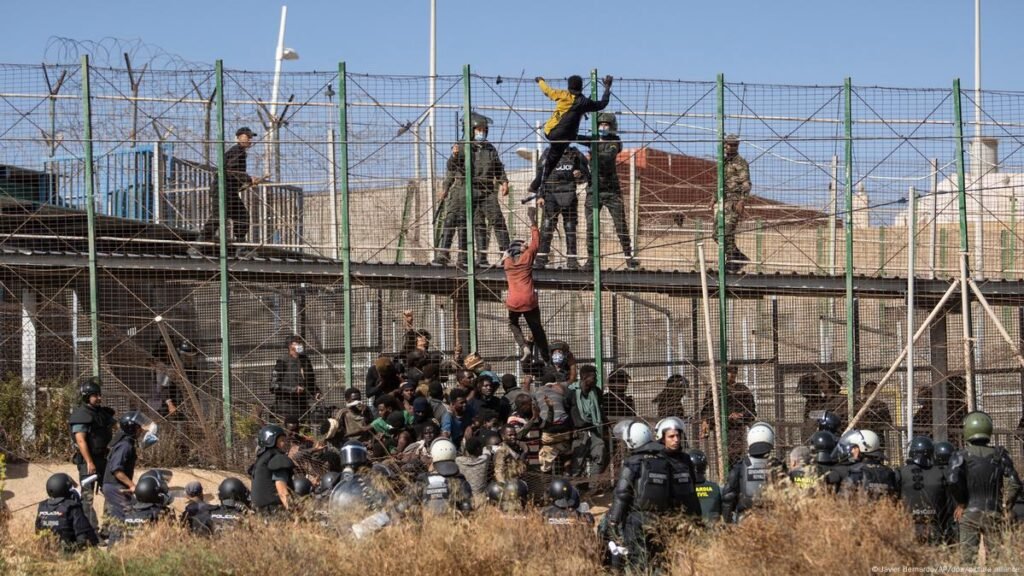
This approach is emblematic of the EU’s broader migration strategy, which prioritizes deterrence and deportation over human rights. The EU’s 2026 migration pact aims to accelerate deportations, tighten border controls, and introduce legal ambiguities around the rights of rescued migrants to enter EU territory. Such measures will only deepen the humanitarian crisis along Europe’s borders.
The Human Cost of Fortress Europe
The vast majority of those who die trying to reach the Canary Islands disappear into the Atlantic, with only 4% of remains ever recovered. Families are left in agonizing uncertainty, unable to confirm the fate of their loved ones. Even when bodies are retrieved, less than half are identified, leading to a proliferation of nameless graves in Spain’s coastal cemeteries.
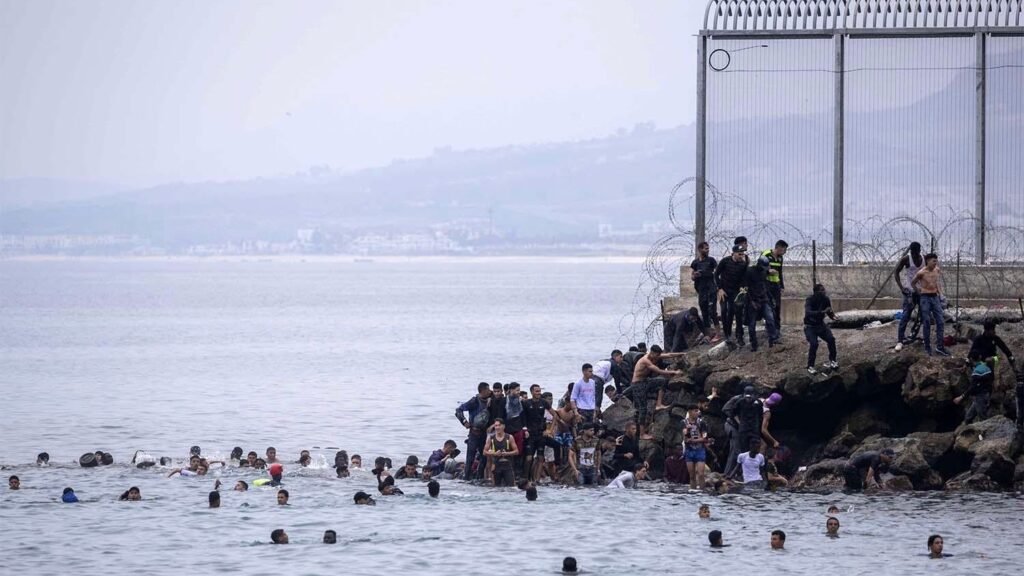
Helena Maleno, director of Caminando Fronteras, describes this as a system of “collective disappearances,” arguing that European authorities are complicit in creating a border regime that dehumanizes and disposes of migrant lives. The report highlights cases where search-and-rescue operations have been co-opted as tools of migration control, prioritizing deterrence over the preservation of life.
A Call for Change
As migration policies grow increasingly repressive, the need for a humane and effective alternative becomes more urgent. Experts and NGOs argue that safe, legal pathways for migration are essential to reducing the human cost of border control. However, the political climate in the EU, with its emphasis on militarization and deterrence, remains resistant to such measures.

If the Atlantic route remains the deadliest sea crossing in the world, it is not for lack of solutions but a failure of political will. Spain and the EU must reconsider their approach, prioritizing human dignity and the right to life over the illusion of security.
In conclusion, the tragedy unfolding along Spain’s borders is not an inevitable consequence of migration but a result of deliberate policy choices. As the death toll rises, the responsibility lies squarely with the governments and institutions that perpetuate Fortress Europe’s brutal border regime. Addressing this crisis requires a fundamental shift in how migration is managed—one that recognizes the humanity of those who risk everything in search of a better life. Without such change, 2024’s record death toll will only be a harbinger of greater losses to come.

